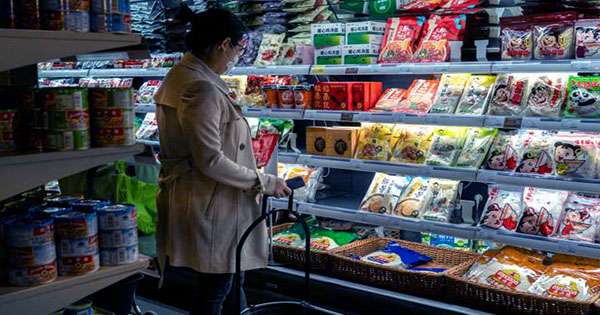After proposing that families should preserve a sufficient number of critical daily goods for “emergency need,” the Chinese Ministry of Commerce sparked a purchasing frenzy in the Asian country. Given that there was no specific motive for it at the time, their peculiar choice of phrase alarmed many people.
So, what was the cause for the hazy warning? The conjecture ranges from supply chain interruptions to war. Following up on the initial letter, the Ministry has informed residents that the advice was to prepare people in case of temporary lockdowns to prevent the spread of COVID-19.
After six local instances of COVID-19 detected, the Chinese authorities recently imposed a rigorous lockdown on the city of Lanzhou, which has a population of over four million people. China has been working on a strong zero-COVID policy, implementing lockdown and limits before instances spiral out of control.
The Winter Olympics, which will hold in Beijing and Xingtai in a few months, are the focus of China’s stringent policies. There are not likely to be as many limitations as there were during the Tokyo Olympic Games this summer.
The Ministry of Commerce gave no rationale for the alert, although it came amid continued coronavirus lockdowns and fears about vegetable supply following abnormally heavy rain that destroyed fields. Local governments also instructed to maintain supply chains working smoothly and pricing consistent, according to the ministry.
Following tales of panic purchasing, state media attempted to assuage fears. “As soon as this news broke, all the old people in my neighborhood went insane, panic shopping at the grocery,” one user commented on the Chinese social media site Weibo.
The Economic Daily, a Communist Party-controlled publication in China, warned its readers not to be worried, claiming that the government’s guidance was intended to ensure that residents were prepared if a lockdown was declared in their region. As if letters were not rare, according to the People’s Daily newspaper, but they came at this time due of factors such as rising vegetable prices and recent Covid incidents.
Food costs in China typically rise as winter approaches, but the price of vegetables has risen sharply in recent weeks due to the harsh weather. Meanwhile, the government continues to implement severe lockdowns in order to combat the coronavirus. China is aiming for zero illnesses by the time the Winter Olympics begin in February. On Monday, China confirmed 92 new cases of coronavirus, and Shanghai Disneyland closed for at least two days after a weekend visitor tested positive with Covid-19 upon returning home.
















